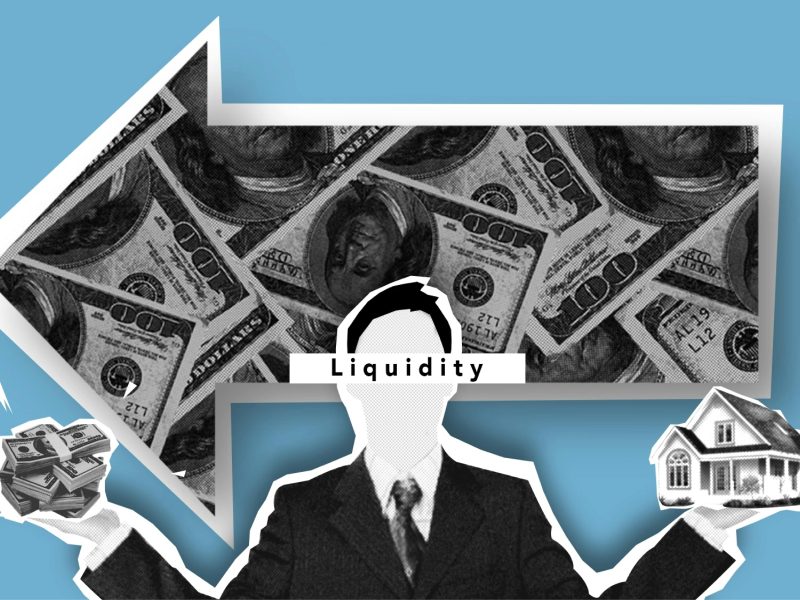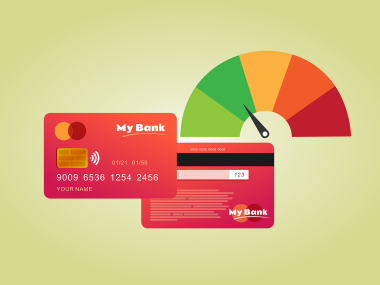The dream of homeownership often feels unattainable for those with less-than-ideal credit. However, how to get approved for a home loan with bad credit isn’t as far-fetched as it may seem. In today’s financial landscape, lenders consider diverse factors beyond just credit scores. Income stability, debt-to-income ratios, and down payments are critical elements reviewed by financial institutions.
This comprehensive guide will explore navigating the complexities of securing a home loan, even with credit that’s not up to par.
Breaking Down the Barriers: Home Loans with Bad Credit
Approval for a home loan is possible even with bad credit, as lenders evaluate various qualifying criteria. Approaching the process with knowledge and preparation can tip the scales in your favor.
Lenders don’t stop at the credit score when reviewing a loan application. They delve into specifics like how much income you bring in versus your existing debts – in a nutshell, your debt-to-income ratio. This gives them insight into your ability to repay the loan.
In the face of bad credit, offering a larger down payment can make a significant difference. Doing so decreases the lender’s risk, which could sway them toward approval.
Indeed, credit scores are crucial, but they aren’t the end-all-be-all. This reality offers hope for those who’ve had past financial missteps.
- Income Matters: A stable and substantial income reassures lenders of your repayment ability.
- Debt Matters: A lower debt-to-income ratio can tip the scales in your favor, indicating manageable debt levels.
- Down Payments Matter: The more you can put down upfront, the less risk the lender takes, leading to approval even with bad credit.
Despite credit score blemishes, approval is still on the table when other financial aspects are sound.
What Can I Do To Improve My Chances Of Getting A Home Loan With Bad Credit?
Considering a home purchase with bad credit may seem daunting, yet strategic moves can significantly enhance your loan approval odds.
First, embarking on a journey to improve your credit score is always advisable. This can include paying down debts, rectifying credit report errors, keeping up with current payments, and building a history of financial responsibility.
Actively saving for a more considerable down payment can also strengthen your position. It’s a visible commitment to your investment and decreases the lender’s risk.
Moreover, having a cosigner with solid credit credentials can work wonders. It can assure the lender of the loan’s solidity, perhaps leading to better loan terms. But, it’s crucial to ensure that they understand the responsibility they are taking on.
Here’s a rundown of steps you can take:
- Focus on reducing existing debt and always pay on time.
- Save a robust down payment to reduce the loan’s risk factor.
- A cosigner with good credit can be a significant asset to your application.
- Research and compare various lenders and loan programs that cater to those with imperfect credit histories.
- Government-insured loan programs, like FHA loans, might be tailor-made for your situation with their lenient criteria.
In closing, these actions can form a powerful approach, potentially transforming your home-buying prospects despite credit challenges.
Types of Home Loans for Bad Credit
Navigating the home loan terrain with bad credit can be tricky, but certain loan types are designed to address this situation.
One such lifeline is an FHA loan backed by the Federal Housing Administration. This program is a godsend for applicants with low credit scores, thanks to its reduced eligibility requirements.
VA loans – guaranteed by the Department of Veterans Affairs – could be a phenomenal option for those who have served in the military. With no strict credit score cutoffs and often no down payment, it’s a compelling route.
But let’s not forget about subprime loans, which, although carrying higher interest rates, cater specifically to those with poor credit histories.
In rural America, USDA loans can provide a path to homeownership with potentially more lenient credit requirements, albeit with geographic and income limitations.
Lastly, home equity loans or HELOCs might be viable if you’ve got equity to leverage, despite an unimpressive credit score.
- FHA loans offer a lifeline for those with credit issues.
- VA loans can be an excellent choice for military personnel, coming with potential no down payment perks.
- Subprime loans provide a route but come at the cost of higher interest and fees.
- USDA loans cater to rural homebuyers with flexible credit criteria.
- Home equity solutions like loans or HELOCs can utilize your existing home’s equity, even if your credit is off the mark.
As we can see, even with credit constraints, you have a selection of loans that could fit your unique financial situation and homeownership goals.
Understanding the Cost: Interest Rates and Bad Credit
Will I have to pay higher interest rates if I have bad credit?
It’s a fair expectation that a lower credit score could lead to higher interest rates on a home loan. This correlation exists because, from a lender’s viewpoint, bad credit equates to higher risk. To hedge against this risk, they might charge more.
The key here is to acknowledge that bad credit often results in costlier loans. However, not all lenders evaluate risk similarly, meaning rates can vary. This variability underscores the importance of shopping around.
- Higher interest rates often accompany loans with bad credit.
- Credit score weight in rate determination is significant; lower scores could ramp up the rates.
- The overall cost of borrowing could inflate over the loan term due to heightened rates.
- Negotiating power may be diminished for borrowers with credit blemishes.
In summary, while higher rates are likely, options still exist for the bad credit borrower, emphasizing the need to explore and compare diligently.
How does my credit score affect the home loan approval process?
Delving into how a credit score affects home loan approval illuminates the various dimensions lenders consider. A credit score does more than quantify your credit history; it signals to lenders your likelihood to repay debts.
A sterling score can unlock the door to lower interest rates, easing the long-term burden of a loan. Conversely, a lower score generally means beefier rates and a more expensive borrowing journey.
Your credit rating also influences the terms of a loan. Stronger scores mean lower down payments and more flexibility, whereas a poor score might tighten the terms.
Despite these challenges, visible efforts to bolster your score can counterbalance some of the negatives, evidencing a commitment to financial rectitude that lenders value.
- Credit score’s impact on interest rates is substantial, directly affecting long-term costs.
- Loan eligibility pivots on credit scores; less auspicious scores can constrain loan options.
- Your score can influence down payment requirements; stronger scores often mean less upfront payment.
- Loan terms can swerve with score variations, affecting fees and payment flexibility.
- Advancing your credit score before loan application is advantageous, improving your odds and potential loan terms.
A credit score, then, is a barometer for lenders, but its implications reach beyond simple numerical judgments. It’s a composite of financial habits that can steer the course of your home loan journey.
Final Thoughts on Securing a Home Loan with Bad Credit
In conclusion, securing a home loan with a ding in your credit is feasible. You can position yourself as a worthy candidate with a detailed understanding of how lenders view various factors, preparing in advance, and exploring all available loan options.
Remember, every step taken to improve your credit, no matter how incremental, and every additional dollar saved for that down payment can have a considerable impact. As the market continues to evolve, so does the understanding that credit is but one piece of a larger financial puzzle.
It’s not an insurmountable barrier, but rather a hurdle that can be overcome with the right approach and information.






